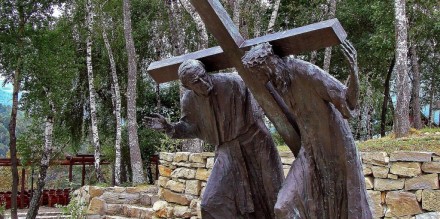The righteousness of the saints in this world consists
more in the forgiveness of sins
than in the perfection of virtues.
—St. Augustine
To my knowledge, I’ve only written about the so-called “Benedict Option”—the subject of Rod Dreher’s new bestselling book—once, and it was after the SCOTUS Obergefell ruling that legalized same-sex marriage in all fifty states. In that post, I quoted from the Catholic theologian Paul Griffiths:
What the pagans need on this matter [of same-sex marriage] is conversion, not argument; and what the Church ought to do to encourage that is to burnish the practice of marriage by Catholics until its radiance dazzles the pagan eye.
In other words, if anyone is going to be convinced of the Scriptural, traditional Christian teaching on marriage and sex, it’s going to be because of winsome, attractive, beautiful Christian practice of that teaching. The living out of the biblical teaching on marriage is what will be persuasive, when all political and theological arguments seem to be ineffectual. And that viewpoint, it would seem, is what the “Benedict Option,” at its best, is all about. It’s about strategically regrouping and recommitting ourselves to serious discipleship so that the world can see we’re not just interested in “culture warring” but that we’re mainly about living out what we profess to believe.
I still think, two years after Obergefell, this is basically right. But I’ve also been thinking lately, since Dreher’s book has been published and I’ve now had a chance to read it, about a qualification or addendum I’d want to make: When Griffiths talks about Christians’ “burnishing the practice of marriage,” that can’t mean “practicing Christian marriage ‘successfully’ or flawlessly.” It also, and inevitably (given the reality of what the Anglican Thirty-Nine Articles of Religion call the “remaining corruption” of those who are regenerated in Christ), must mean confessing sin and finding forgiveness and pursuing reconciliation in our marriages.
Continue reading →



 This focus on the positive vocation to love is not an original formula we came up with. It is a basic element of Christian and Catholic teaching, applied to the particularities of ministry to lesbian, gay, and bisexual persons.
This focus on the positive vocation to love is not an original formula we came up with. It is a basic element of Christian and Catholic teaching, applied to the particularities of ministry to lesbian, gay, and bisexual persons.
You must be logged in to post a comment.